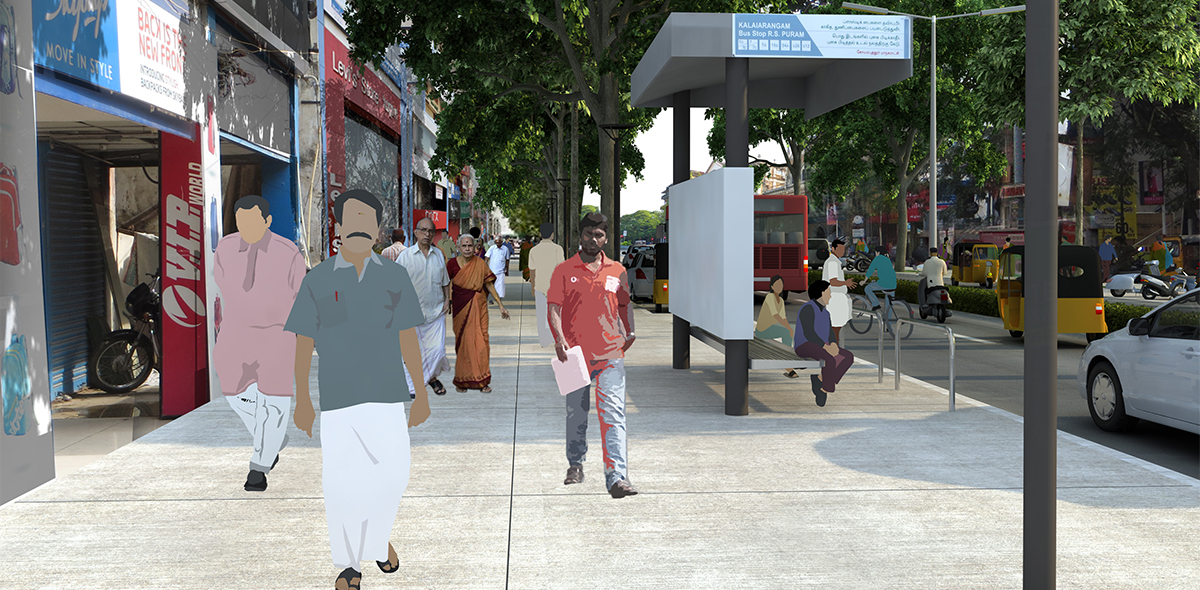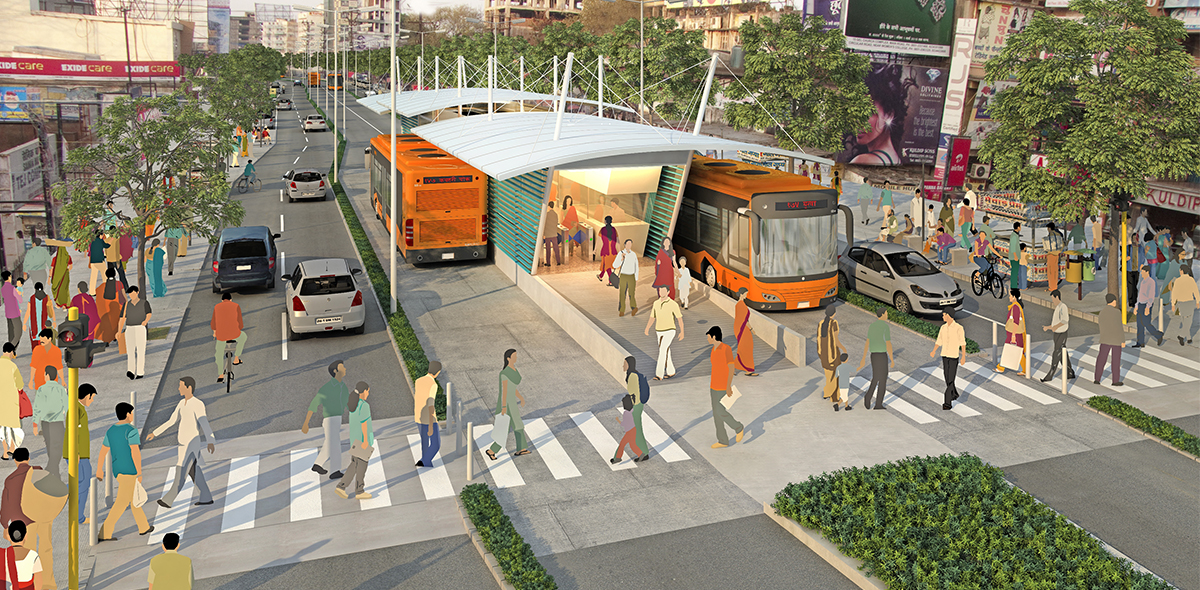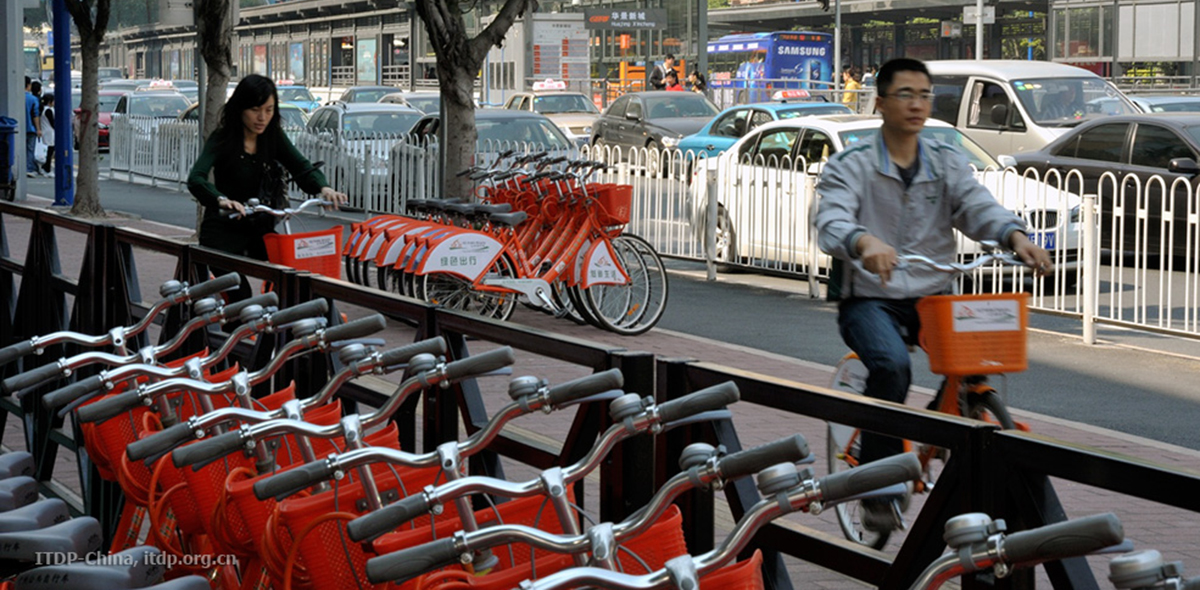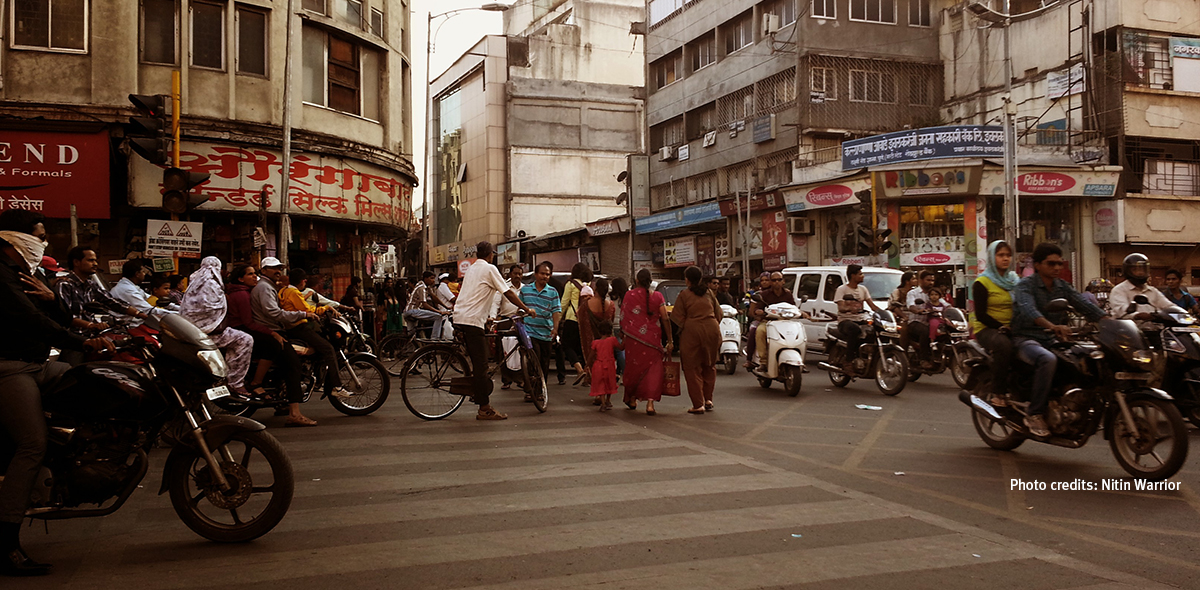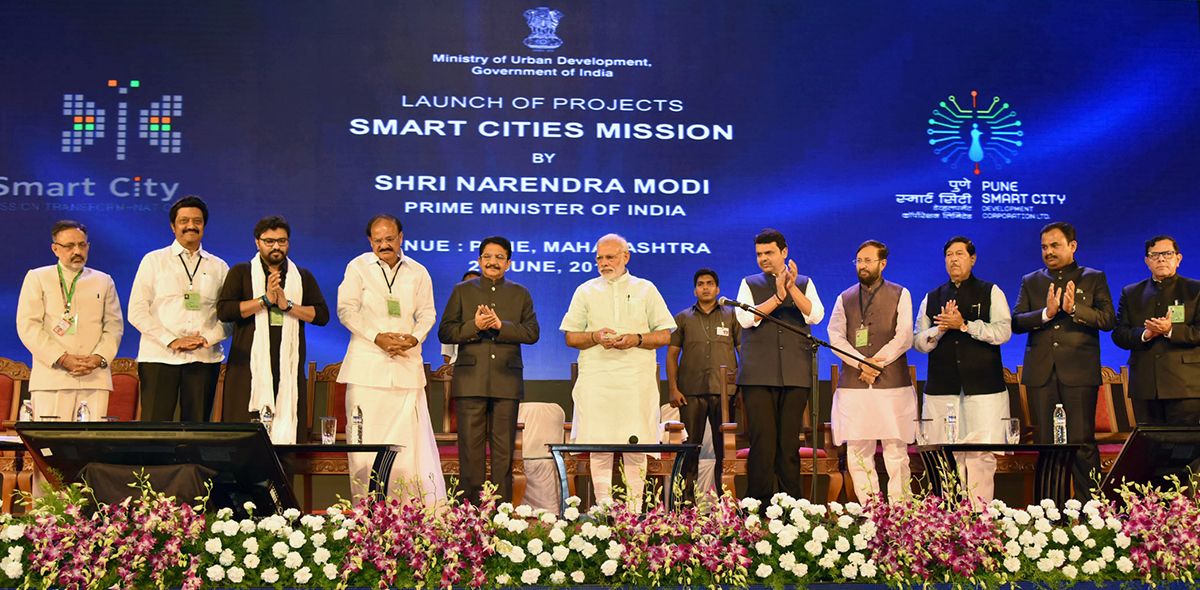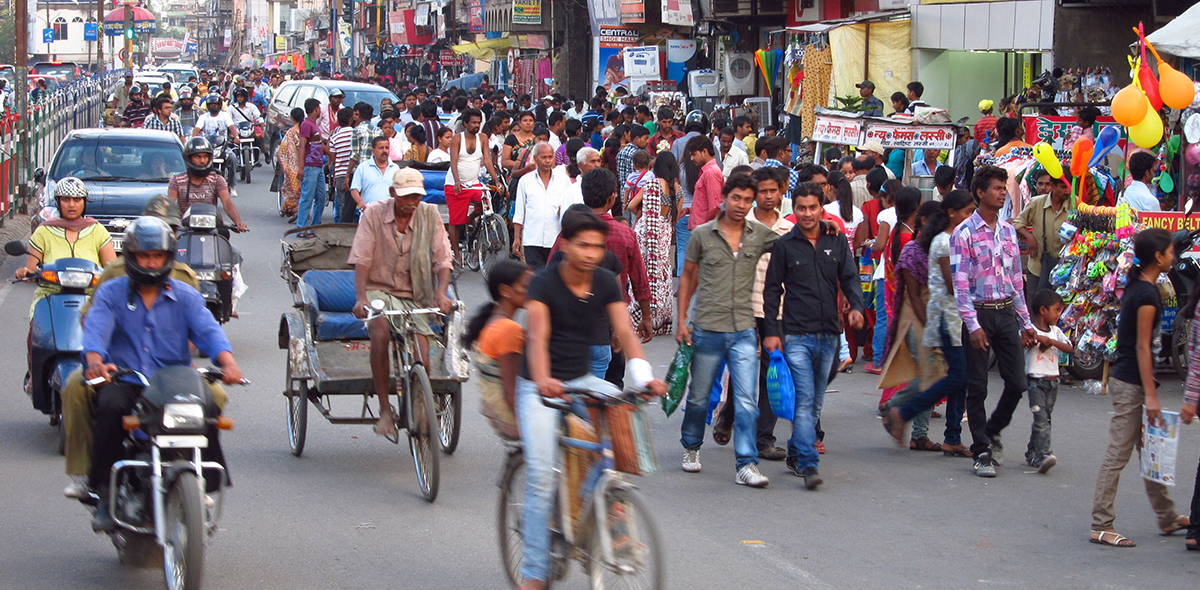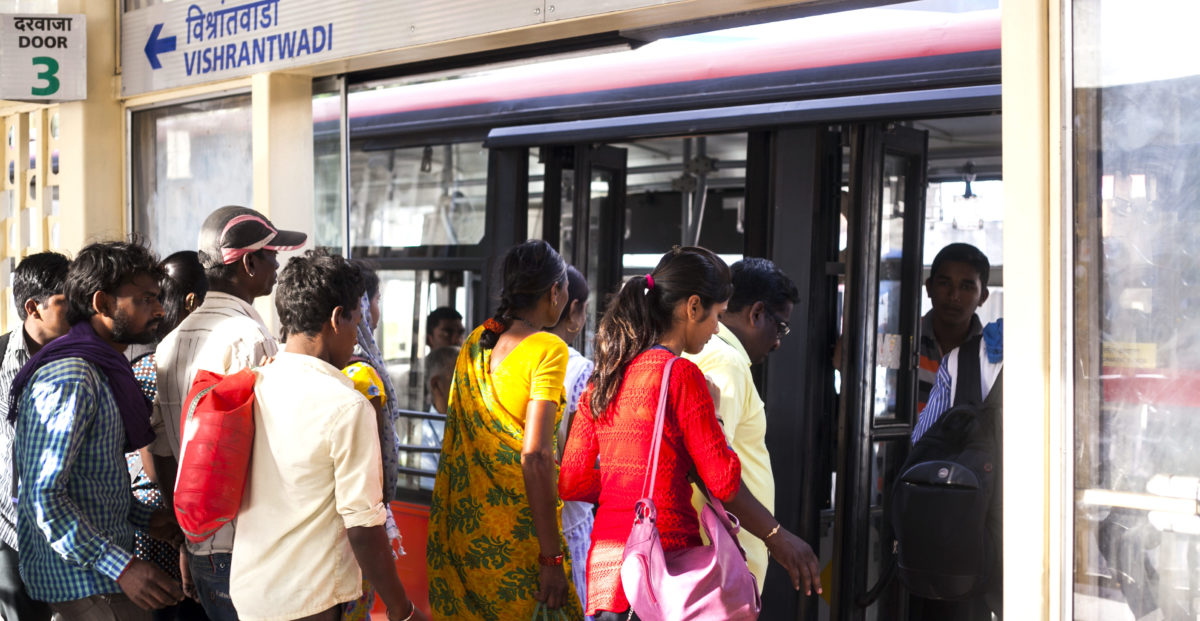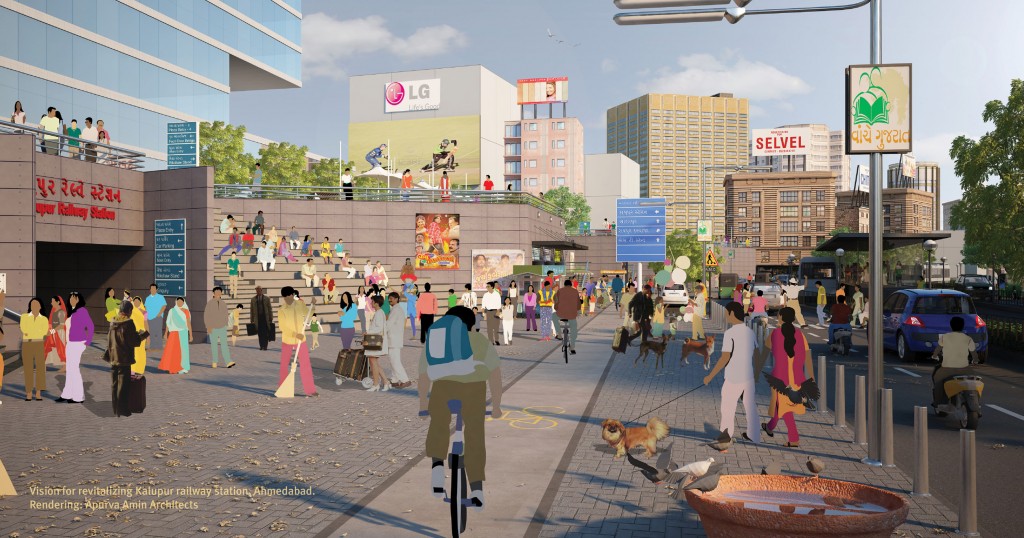“It is refreshing to find the government making plans for people — I’ve always seen only flyovers and road widening projects for the benefit of vehicles.” This was what Mr. Ravikumar, a 54-year old resident of T. Nagar, had to say the day Chennai witnessed the first trial run of its proposed pedestrian plaza. A 700 m stretch in Pondy Bazaar, a central & prime shopping street in the city, was closed off to cars on November 20, 2016 from 9:00 am to 1:00 pm.
The street was filled with happy and excited faces, owing to the various activities that had been planned along the stretch. The past year has had many such successful pro-people events and initiatives which ITDP has supported and co-partnered. Here is a recap of the year that has gone by and a glimpse into the one to come.

Pune had its own week-long part-pedestrianisation trial run
Apart from Chennai’s Pondy Bazaar ‘Mall Road’ test run, Pune had its own week-long part-pedestrianisation trial run in Aundh, turning one half of the road on a 1.5 km stretch into a non-motorised transport (NMT) zone. On the cycling front, to build support and raise demand for better infrastructure, Nashik celebrated Cycle Day on 26th April, 2016. Following its success, the mayor allocated funding to develop a 9 km cycle track network in the city.
Beyond these people-friendly events which promoted walking and cycling, ITDP has succeeded in bringing systemic change to the process of street design in a few cities. Pune formed its Street Design Cell comprising of dedicated urban design specialists. The city also adopted Urban Street Design Guidelines prioritising pedestrians, cyclists and public transport. This guide will now influence the design of over 100km of streets in the city. In Coimbatore, 6 architects were empanelled early 2016 to design the 6 streets identified for the first phase of the Model Roads project. The city municipal corporation sanctioned Rs. 5.5 crores for construction of 2 of these roads.

Coimbatore Corporation sanctioned Rs. 5.5 crores for construction of 2 Model Roads
The public transport sector has witnessed several developments, especially in the BRT projects across Chennai & Pune. In Chennai, the selected BRT consultants – IMaCS in joint venture with Logit – started work on the detailed project report. Pune started work on expanding its BRT network by 15 km with UMTC as the consultant. Pune also introduced mobility cards and issued the same to a few citizens as a start.

Pune started work on expanding its BRT network by 15 km
Improvements in cycling & walking facilities and public transport need to be clubbed with better management of personal motor vehicles (PMV) use, especially parking, in order to create the necessary shift from PMVs to sustainable transport modes. Towards this cause, Pune proposed a progressive parking policy which pegs differential parking rates in the central area of the city. Ranchi Municipal Corporation adopted a similar parking resolution, with three different zones: Green, Yellow and Orange – with maximum pricing in the Orange zone.
Finally, better cities can only be achieved by embracing the 8 principles of Transit-Oriented Development (TOD), including walking, cycling, public transport, parking, etc, that lead to good urban growth. Jharkhand Government proposed a TOD policy which includes actively planning for future mixed use developments — residential, commercial, and other uses — within a compact city form, so that most citizens live, work, and play within walking distance of public transit.
On the whole, sustainable transport received much due attention in cities across the nation in 2016. Around half of Pune’s transport budget got assigned towards sustainable transport initiatives, with an additional 220 crore rupees for the city’s BRT expansion. 3 cities in Tamil Nadu – Coimbatore, Tirupur and Trichy – had 50 crore rupees allocated in all, to initiate the planning process for dedicated cycle tracks and a Public Bicycle Sharing system.
The biggest win of the year, however, was the selection of Pune, Chennai, Coimbatore and Ranchi as Smart Cities, with over 600 crore rupees to be invested in sustainable transport projects. ITDP has been working with these cities in different roles, providing technical support to projects, capacity building for officials, and creating community engagement at various levels.

A network of greenways linking 8 major lakes is proposed in Coimbatore, as part of the Smart Cities Mission
The year that went by saw many exciting wins, the year to come promises more:
NMT- Coimbatore has planned to organise an exhibition to inform the public, and receive their feedback, about the Model Roads, 2 of which will be reconstructed in 2017. Also in the pipeline for the city is the rejuvenation of 8 lakes and 30 km of greenways around them, for which the RFP will be floated this month. In Chennai, all streets in T.Nagar and two intersection in Egmore will be redesigned this year.
Cycle sharing – Coimbatore and Ranchi are planning to start work on setting up cycle sharing systems in the two cities with 1600 and 1200 cycles respectively.
BRT- Chennai is looking forward to getting the BRT DPR ready and approved by the government in 2017. Pune expects to launch 7 km of the existing network retrofitted by the end of the year.

Pune expects to launch 7 km of retrofitted BRT in 2017
Parking management – Chennai plans on launching its on-street parking pilot project in T.Nagar for 1000 equivalent car spaces. Ranchi will test its parking resolution on-ground through a pilot project in its central area.
TOD – People Near Transit (PNT) is an important index to measure accessibility to public transport in a city. Having already conducted a PNT survey on Chennai, ITDP plans to expand the study to other cities like Delhi and Ahmedabad. Also planned is a workshop on inclusive Transit Oriented Development. (i-TOD)
The future also holds new ventures such as gender-related transport issues, with Ranchi aiming to address women safety in transport in the coming months. With all these plans lined up for 2017, here’s hoping to a great year! Happy New Year!





